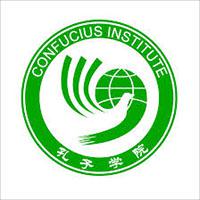 After six years of work, the University of Havana’s Confucius Institute finally has a permanent headquarters, located in the building which was once home to the old Pacífico restaurant, an emblematic structure in the capital’s China Town.
After six years of work, the University of Havana’s Confucius Institute finally has a permanent headquarters, located in the building which was once home to the old Pacífico restaurant, an emblematic structure in the capital’s China Town.
The completely renovated facility was inaugurated October 14, in a ceremony which saw the participation of Miguel Díaz-Canel Bermúdez, first vice president of Cuba’s Councils of State and Ministers.
During the inauguration, Arsenio Alemán, director of the Confucius Institute (IC), thanked the Teach Chinese as a Foreign Language Office, the Beijing Language and Culture University, as well as the Cuban and Chinese entities that participated in the project.
Zhang Tuo, ambassador of the People’s Republic of China in Cuba, also in attendance at the ceremony, emphasized the historical significance of the Pacífico building, which he described as “witness to the friendship and cultural exchanges between the two peoples.”
Likewise, the diplomat highlighted the role of the IC in disseminating the culture and language of his country; while also expressing his desire that more people study the language of Confucius, and his certainty that “this institute will play an even more important role in strengthening relations between China and Cuba.”
The works undertaken by the IC over the past six years (beginning November 2009) have already borne fruit with the new headquarters representing the consolidation of these achievements. In the medium-term the institution is expected to receive the necessary resources to fully exploit the renovated building.
The academic center acts as a bridge to understanding the millennium-old culture and history of the Asian nation, while also offering students the opportunity to study in the country.
The Institute is home to one of the country’s most comprehensive and up-to-date libraries on China. It also has audiovisual and informative materials on the country’s education system, economic situation and culture.
Of the 11 professors who work at the institute, six are affiliated with Beijing Language and Culture University. The rest are Cuban educators who have studied the language in China.
The IC currently accepts 500 students who are also taught the values and customs of this sister nation.
The IC aims to double its enrollment quota, and from its new headquarters “disseminate the greatest contributions of Chinese culture and history in this city. It will be a place where the fraternal relationship between the Communist parties of Cuba and China finds a place to strengthen itself,” according to Dr. Gustavo Cobreiro, rector of the University of Havana.
(Granma)